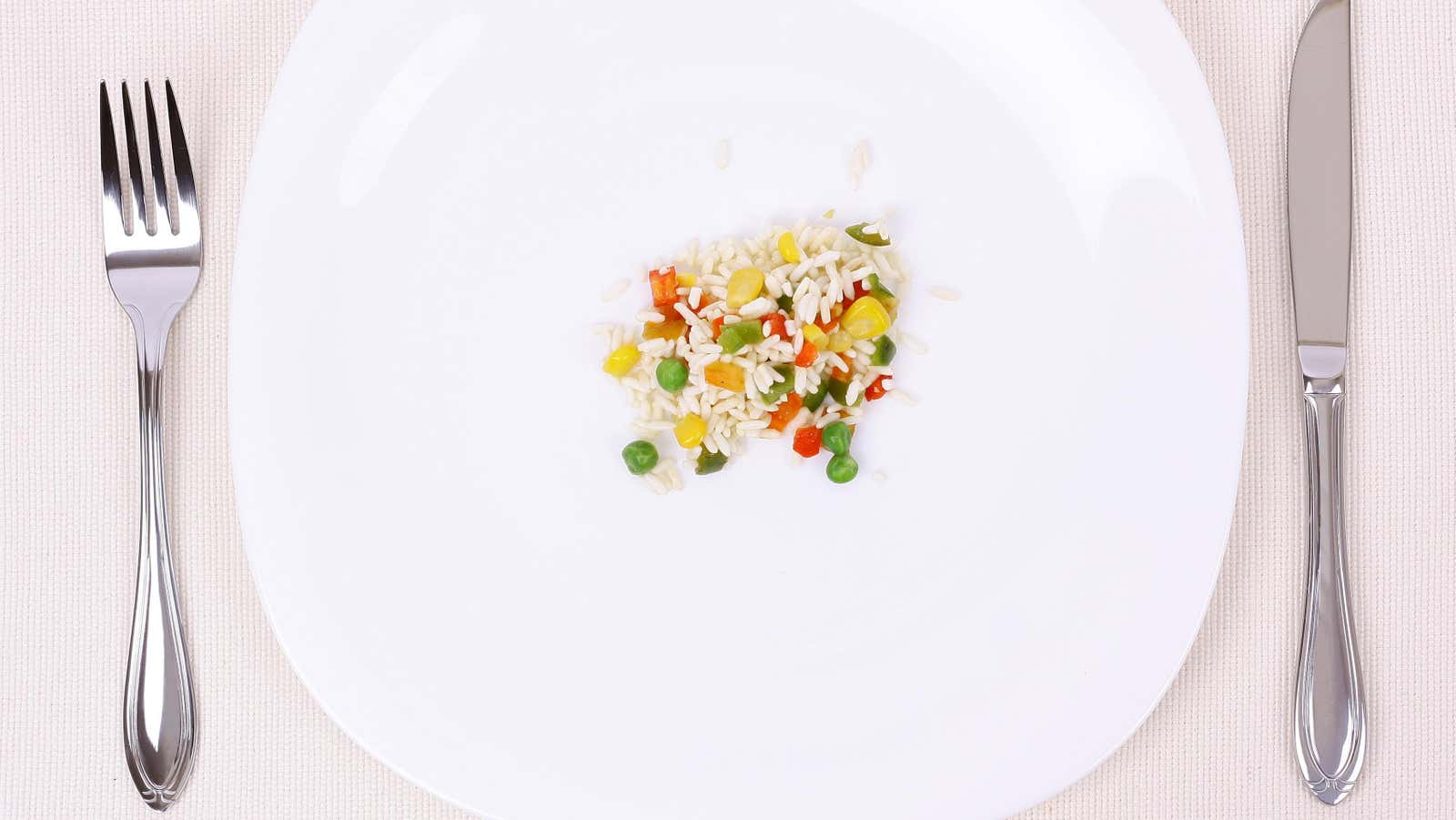Calorie Restriction Is Not the Way to Longevity

If you give mice less food than they normally eat, they tend to live longer. This largely consistent conclusion is the basis for many of the techie “biohacks” about eating less. But is undereating really good for you?
Much of the work on so-called caloric restriction has been done in rodents, with mixed results in monkeys . But now we have new human research data. More than 200 normal weight adults had to eat either their regular diet or 25% less food (eg 1500 calories for someone who burns 2000 calories). And the results did show some change in one measure of “biological age” after two years of dieting.
I say try because the average calorie restriction was more like 12% than 25%. The researchers used two different blood tests for DNA methylation, which should decrease with age. One test found no difference between calorie restrictors and the control group. Another test found no difference during the first year, but some small changes during the second year indicate a slight slowdown in aging.
Is it really healthy to undereat?
The biohacker brothers talk about longevity all the time, but their concern is often rooted in a fear of disability or sometimes appearance. It’s not that they want to live longer, it’s that they’re afraid to look and feel old . Similarly, the enthusiasm for calorie restriction also seems misplaced to me. Remember when everyone realized that the tech brothers’ obsession with fasting was very much like a good old diet, maybe leaning towards eating disorders? If eating less can make you leaner and possibly not age, isn’t that cool?
But there’s a pretty obvious problem with eating less to supposedly make you healthier: undereating isn’t necessarily healthy! Rodent studies often use a 40 percent calorie restriction (equivalent to 1,200 for a person who burns 2,000 calories), and a recent human study should have been much more acceptable at just 25%. Since people only managed about half of that amount, we’re looking at 1750, which is similar to a moderate weight loss diet. Not too crazy.
But, as we said earlier , dieting forever is unrealistic, right? Your body will get used to the reduced amount of food over time, but is it really a good way to live? Personally, I like to be strong and I eat a lot of food. This is partly to fuel my workouts and partly to give my body the raw materials it needs to build muscle. As I got stronger, I got bigger and that makes me happy. So I try not to talk too much about my biases, but I think it’s too early to start restricting calories in the name of health.
We do not know the effects of long-term calorie restriction on humans.
Ultimately, the problem is that we don’t know if limiting calories for life will actually make you more alert in your golden years, or just make you thin and miserable.
We all tend to lose muscle mass as we age, which in severe cases is a phenomenon called sarcopenia . When you have very little muscle, it’s harder for you to stay active, which can lead to health problems, which can cause you to spend more time in bed and so on. People with sarcopenia may have trouble living independently and taking care of themselves, and may be more at risk for falls and fractures.
If you are improving your metabolic health through physical endurance, are you really setting yourself up for successful aging? Sports nutrition researcher Eric Trexler argues that if you want to enjoy the last years of your life, calorie restriction is probably not the best way to achieve this.
Ultimately, if you want to limit your calorie intake for the sake of longevity, you are making a huge bet based on very incomplete information. So far, we know very little about outcomes in humans, other than small changes in things like blood markers in the short term. In rodents, where most of the research has been done, there are still a lot of questions . For example, some rodent species benefit little from caloric restriction. Some studies have shown problems with bone loss and delayed wound healing.
Are you really going to bet your entire lifestyle on studying with mixed results? What to do if you are hungry? What if you don’t have energy? What if it sucks? Are you just going to continue like this for another 50 years and hope you’re on the right track?
I’m not going, anyway. I will continue to eat normal amounts of food and focus my longevity efforts on things like good sleep and a healthy diet with proteins, vegetables and micronutrients. We already know that exercising, quitting smoking, avoiding excessive drinking, and having an active social life help us stay healthy in old age. If we choose biohacks for longevity, I will take them.